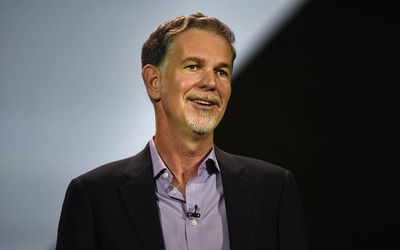Old guard not over the moon with over-the-top
by Suzette Plantema,
2016-03-01 05:47:00.0
MOROCCO banned free voice-over internet protocol (VoIP) calls in January, a bold step validated by its Telecommunications Regulatory National Agency, which said WhatsApp, Viber, Facebook and Skype did not have licences to provide services in the country.
Substantial losses recorded by the telecom operators and by the regulator are said to be the main reason behind the move, which follows the example of other countries in the region — Egypt and the United Arab Emirates had already banned the services.
It came as no surprise to telecom professionals that the Moroccan decision coincides with the arrival of over-the-top (OTT) services across Africa.
When Netflix CEO Reed Hastings said in January at the Consumer Electronics Show in Las Vegas that Netflix was now available in 130 countries — almost every country except China — many African telecom operators were rattled. There was concern at the challenge presented by Netflix’s video streaming service, and OTT services in general, to existing operators, regulators and governments.
The Communications Authority of Kenya and the Kenya Film Classification Board had a big difference of opinion on the issue.
The board maintained Netflix should apply for a local broadcast licence to ensure it is subjected to Kenya’s film classification system, and the authority ruling that, as an OTT provider that serves its content through streaming, Netflix could not be licensed locally.
Telecom operators in SA do not agree on the OTT issue.
Vodacom is in favour of an agreed and mutually beneficial relationship between telecom operators and OTT operators.
"A lot of your data growth is driven by the same people who are trying to cannibalise you," CEO Shameel Joosub said recently.
MTN CEO Mteto Nyati would like the regulator to step in "because (OTTs) are getting huge benefit out of an industry without making any investment".
Cell C supports a "light touch" approach to OTT regulation.
The Moroccan blanket ban of OTT services in its territory has sparked fears of a domino effect as the emergence of free voice services using alternative routes to those of established telecom operators becomes firmly entrenched across Africa.
The need to benchmark against other countries is recognised in Africa, but states and regulators remain deeply concerned by the effect of OTT services on the revenues of operators and the state. A unified African position paper is nowhere on the radar, but regional positions are being cemented.
The East African Communications Organisation decided in November to clarify its position on OTTs after taking note of, among others, cannibalisation of revenues and traffic as a result of the introduction of OTT services and applications.
Meanwhile, discontent over OTT forays into the telecom market continues to be expressed, with operators such as Econet in Zimbabwe echoing what is being said elsewhere; that OTT services are the reason they are seeing a drop in voice call revenues.
The gloomy economic outlook characterised by a sharp decline in oil prices and concomitant effects on the price of commodities is bound to alert African countries more to revenues being lost as a result of inadequately framed or poorly implemented regulation.
A survey led by MobileSquared, a consultancy group based in the UK, has found that 25% of European telecom operators lost at least 5% of their turnover in 2012-13 through the introduction of OTT platforms, while Ovum forecasts a loss of $479bn to telecom operators due to OTT voice services by 2020.
However, not all operators are against OTTs. Many telecom players in Africa, such as Global Voice Group (GVG), consider the creation of partnerships between operators and OTTs the way to make them more accountable in a relationship fair to all parties involved. GVG is an international company working exclusively with governments and regulatory authorities to enhance both the governance and performance of the telecommunications sector through the smart use of information and communication technologies.
There is no gainsaying the fact that the new services the digital economy brings will usher in different forms of innovation across the communication spectrum, to the benefit of all.
However, this positive scenario implies that the governments and telecom or tax authorities of emerging and developing countries will have to keep abreast of the innovations and developments brought by the OTTs.
• Plantema is a copywriter contracted to GVG

Netflix CEO Reed Hastings says his streaming video services are available in 130 countries, rattling many of the African telecom operators whose bottom line is being hit by over-the-top services. Picture: BLOOMBERG/DAVID PAUL MORRIS
MOROCCO banned free voice-over internet protocol (VoIP) calls in January, a bold step validated by its Telecommunications Regulatory National Agency, which said WhatsApp, Viber, Facebook and Skype did not have licences to provide services in the country.
Substantial losses recorded by the telecom operators and by the regulator are said to be the main reason behind the move, which follows the example of other countries in the region — Egypt and the United Arab Emirates had already banned the services.
It came as no surprise to telecom professionals that the Moroccan decision coincides with the arrival of over-the-top (OTT) services across Africa.
When Netflix CEO Reed Hastings said in January at the Consumer Electronics Show in Las Vegas that Netflix was now available in 130 countries — almost every country except China — many African telecom operators were rattled. There was concern at the challenge presented by Netflix’s video streaming service, and OTT services in general, to existing operators, regulators and governments.
The Communications Authority of Kenya and the Kenya Film Classification Board had a big difference of opinion on the issue.
The board maintained Netflix should apply for a local broadcast licence to ensure it is subjected to Kenya’s film classification system, and the authority ruling that, as an OTT provider that serves its content through streaming, Netflix could not be licensed locally.
Telecom operators in SA do not agree on the OTT issue.
Vodacom is in favour of an agreed and mutually beneficial relationship between telecom operators and OTT operators.
"A lot of your data growth is driven by the same people who are trying to cannibalise you," CEO Shameel Joosub said recently.
MTN CEO Mteto Nyati would like the regulator to step in "because (OTTs) are getting huge benefit out of an industry without making any investment".
Cell C supports a "light touch" approach to OTT regulation.
The Moroccan blanket ban of OTT services in its territory has sparked fears of a domino effect as the emergence of free voice services using alternative routes to those of established telecom operators becomes firmly entrenched across Africa.
The need to benchmark against other countries is recognised in Africa, but states and regulators remain deeply concerned by the effect of OTT services on the revenues of operators and the state. A unified African position paper is nowhere on the radar, but regional positions are being cemented.
The East African Communications Organisation decided in November to clarify its position on OTTs after taking note of, among others, cannibalisation of revenues and traffic as a result of the introduction of OTT services and applications.
Meanwhile, discontent over OTT forays into the telecom market continues to be expressed, with operators such as Econet in Zimbabwe echoing what is being said elsewhere; that OTT services are the reason they are seeing a drop in voice call revenues.
The gloomy economic outlook characterised by a sharp decline in oil prices and concomitant effects on the price of commodities is bound to alert African countries more to revenues being lost as a result of inadequately framed or poorly implemented regulation.
A survey led by MobileSquared, a consultancy group based in the UK, has found that 25% of European telecom operators lost at least 5% of their turnover in 2012-13 through the introduction of OTT platforms, while Ovum forecasts a loss of $479bn to telecom operators due to OTT voice services by 2020.
However, not all operators are against OTTs. Many telecom players in Africa, such as Global Voice Group (GVG), consider the creation of partnerships between operators and OTTs the way to make them more accountable in a relationship fair to all parties involved. GVG is an international company working exclusively with governments and regulatory authorities to enhance both the governance and performance of the telecommunications sector through the smart use of information and communication technologies.
There is no gainsaying the fact that the new services the digital economy brings will usher in different forms of innovation across the communication spectrum, to the benefit of all.
However, this positive scenario implies that the governments and telecom or tax authorities of emerging and developing countries will have to keep abreast of the innovations and developments brought by the OTTs.
• Plantema is a copywriter contracted to GVG





















Change: -1.52%
Change: -1.45%
Change: -2.04%
Change: -0.88%
Change: -3.28%
Data supplied by Profile Data
Change: 0.01%
Change: -0.15%
Change: -1.52%
Change: 0.00%
Change: -0.32%
Data supplied by Profile Data
Change: 1.01%
Change: 0.45%
Change: 0.76%
Change: 0.82%
Change: 0.23%
Data supplied by Profile Data
Change: -2.40%
Change: -3.32%
Change: -3.66%
Change: -3.81%
Change: -1.15%
Data supplied by Profile Data